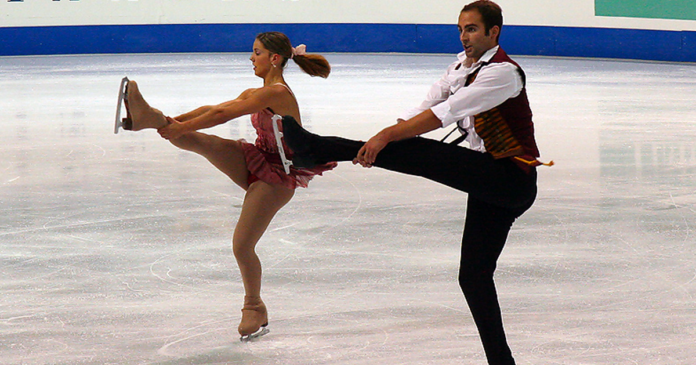The national governing body of figure skating has gutted “man” and “woman” from its official vocabulary and will instead opt for terms more in line with gender ideology.
Upon consultation with Skate Canada’s Equity, Diversity and Accessibility Operating Committee, the organization will now require the definition of a “team” to mean “(consisting) of two skaters.”
According to Skate Canada, the terms “man” and “woman” were discriminatory and not in-line with the association’s values.
“This change is about removing barriers to participation in skating, and we believe it will have a significant impact in ensuring all gender identities are recognised and accepted equally and without prejudice,” said Skate Canada President Karen Butcher.
“This change has been collectively endorsed by Skate Canada and will allow for new and exciting partnerships in the pair and ice dance disciplines to compete at the national level. Skate Canada is privileged to continue the advancement of skating in Canada by making rule and policy change that allows everyone to experience the joy of skating.”
A disclaimer by the organization notes that the changes only apply to domestic competitions and not those overseen by the International Skating Union, which still maintains the traditional sex-based definition.
Canadian Olympic pair skating gold medalist Jamie Sale commented on Twitter about the change of definition.
Prior to the language change, same sex pairs were already allowed to compete in skating competitions in Canada since 2018 under Skate Canada’s inclusion policy.
“The trans inclusion policy provides opportunity for trans persons to participate in skating as the gender they identify as and not necessarily their sex assigned at birth,” a Skate Canada FAQ explains.
“Trans persons are not required to prove their gender identity in any way and are not required to disclose that they are trans if they choose not to.”
The new changes will mean that official rulebooks will be re-written to abide by the new policy.
Earlier this month, Paris Institute of Political Studies (Sciences Po) dance teacher Valerie Plazenet was cited for discrimination over a similar policy introduced by the university requiring teachers to refer to students as “leaders” and “followers” instead of “men” and “women.”
Similarly in Canada, Vancouver nurse Amy Eileen Hamm is currently facing a disciplinary hearing for speaking out against radical gender ideology.






















